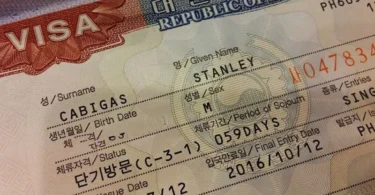As Germany continues to digitize its industries and modernize its infrastructure, technicians are in high demand across various sectors, including engineering, IT, manufacturing, and energy. If you’re a trained technician from outside the European Union, Germany’s work visa pathways offer an excellent opportunity to live and work legally with a starting salary of around €45,000 per year.
In this 2025 guide, we’ll explain the work visa options, eligibility requirements, job opportunities, and how to apply successfully as a skilled technician in Germany.
Table of Contents
Why Germany Needs Foreign Technicians
Germany is experiencing a technical skills shortage, particularly in fields such as mechatronics, electronics, mechanical engineering, renewable energy, and IT infrastructure. The combination of:
- An aging workforce
- Expanding green and digital economies
- Declining vocational education enrolment
- Skilled labor gaps in rural and industrial regions
…has created thousands of job openings for skilled technicians in both the public and private sectors.
To close this gap, the German government has introduced new immigration laws, streamlined visa processes, and fast-track recognition systems to attract international technical workers.
Eligible Technician Roles in Germany (2025)
Germany officially recognizes a wide range of “technical” professions (known as Fachkräfte) that qualify for skilled work visas.
Some high-demand technician roles include:
- Electronics Technicians
- Mechatronics Technicians
- Mechanical Technicians
- Industrial Maintenance Technicians
- HVAC and Refrigeration Technicians
- Energy Systems Technicians
- IT Support Technicians
- Telecommunications Technicians
- Automation Technicians
- Medical Equipment Technicians
Salary Expectations for Technicians
Salaries depend on location, company size, experience, and qualifications. However, most technician roles offer competitive pay:
- Entry-level salary: €36,000 – €42,000/year
- Mid-level with 3–5 years experience: €45,000 – €55,000/year
- Senior or supervisory roles: €60,000+/year
Larger companies in cities like Munich, Frankfurt, and Hamburg often offer higher pay, while rural areas may provide relocation assistance and housing support.
Germany’s Skilled Worker Immigration Law (2020–2025 Update)
As of 2025, Germany’s Skilled Immigration Act (Fachkräfteeinwanderungsgesetz) allows non-EU nationals to work in skilled jobs—including technician positions—provided they meet certain conditions.
Key Requirements
- A recognized vocational qualification or technical degree (e.g., diploma, B.Tech, NVQ, or equivalent)
- Two or more years of work experience (preferred but not always required)
- A job offer from a German employer
- German language skills (usually A2–B1 level)
- A skills recognition or equivalence certificate via German authorities
How to Apply for a Work Visa as a Technician
Step 1: Recognize Your Qualifications
Before applying for a job or visa, your diploma or certificate must be recognized as equivalent to a German vocational qualification.
This process is called Anerkennung and is handled by authorities like IHK FOSA or ZAB.
If you enjoy this article, don't miss out on the valuable insights and information available in our other related posts:
Step 2: Search and Apply for Jobs
You can start applying for jobs while your recognition is in process. Use job boards like:
- Make-it-in-Germany.com
- StepStone.de
- Indeed.de
- Jobbörse der Bundesagentur für Arbeit
- LinkedIn Jobs (Germany filter)
- Monster.de
Search for terms like “Techniker mit Sponsoring” or “Fachkraft mit Visa-Unterstützung.”
Step 3: Secure a Job Offer
Once you receive a job contract, your employer may assist with the visa process or direct you to the next steps.
Step 4: Apply for the Work Visa
Go to the German embassy or consulate in your country with:
- Valid passport
- Job offer or contract
- Proof of recognized qualifications
- Language certificate (Goethe/TELC A2 or B1)
- Proof of health insurance
- Accommodation details or address in Germany
- Financial statements (optional, in some cases)
The visa issued is usually the “Residence Permit for Qualified Employment,” valid for up to 4 years and renewable.
Can You Move Without a Job Offer?
Yes. Germany allows skilled workers (including technicians) to enter on a Job Seeker Visa.
Key Benefits
- Valid for 6 months
- Lets you search for jobs on the ground in Germany
- Must show proof of funds and a recognized qualification
- Once hired, you convert the visa to a regular work permit
This option is best for confident job seekers with intermediate German skills and some savings.
Language Requirements
While some multinational companies operate in English, most technician roles require at least A2 or B1 level German to interact with teams, read safety manuals, and understand regulations.
Where to Learn
- Goethe-Institut (worldwide)
- TELC certified programs
- Online platforms: Babbel, Deutsche Welle, Lingoda
- In-country language schools (if you arrive on a Job Seeker Visa)
The higher your language level, the better your employment and integration prospects will be.
Benefits of Working in Germany as a Technician
- Stable, long-term employment with contracts and social protections
- Path to permanent residence after 33 months (or 21 months with strong German skills)
- Health insurance, pension, and job security
- Free education for children
- Spouse and family reunification permitted
- High standard of living and strong labor laws
Germany also offers tax benefits, paid vacation, and public transport subsidies in many companies.
Challenges and Considerations
- Recognition of qualifications can take 2–6 months
- Some regions (mainly rural) have limited English support
- Bureaucratic paperwork and translations are required
- Cost of living varies—cities are more expensive, but wages are higher
Still, for skilled technicians, the process is very achievable with planning and guidance.
Bottom Line
If you’re a trained technician seeking career growth and global experience, Germany offers one of the most structured and rewarding pathways in 2025. With a clear visa route, attractive salaries starting at €45,000 per year, and long-term residence options now is the right time to take your career to Europe’s economic heart.





